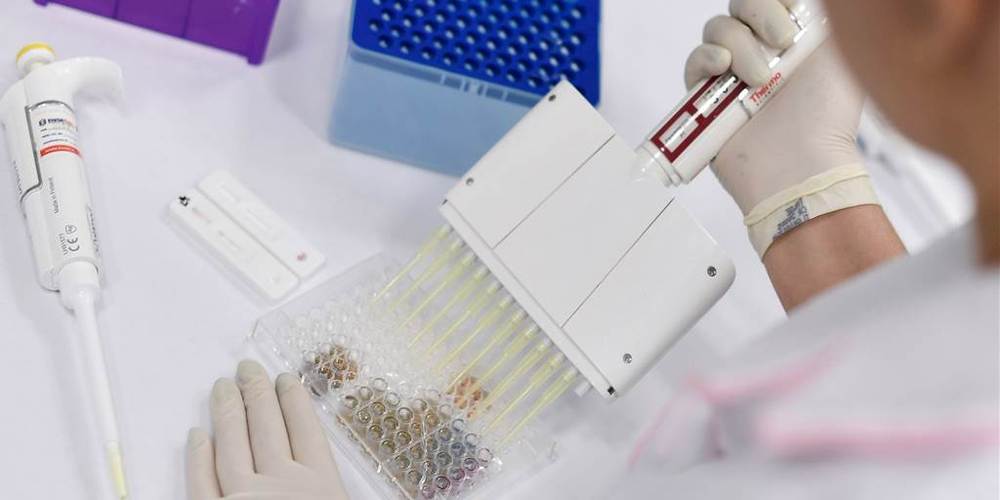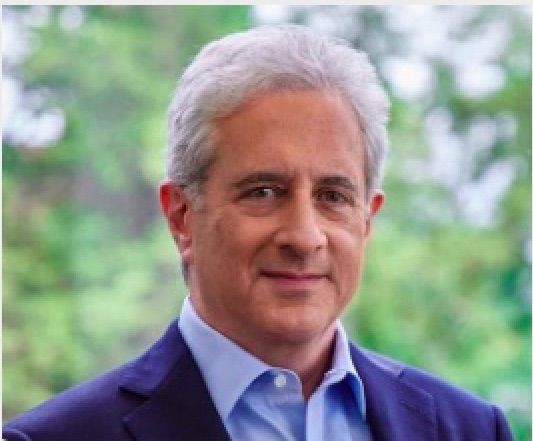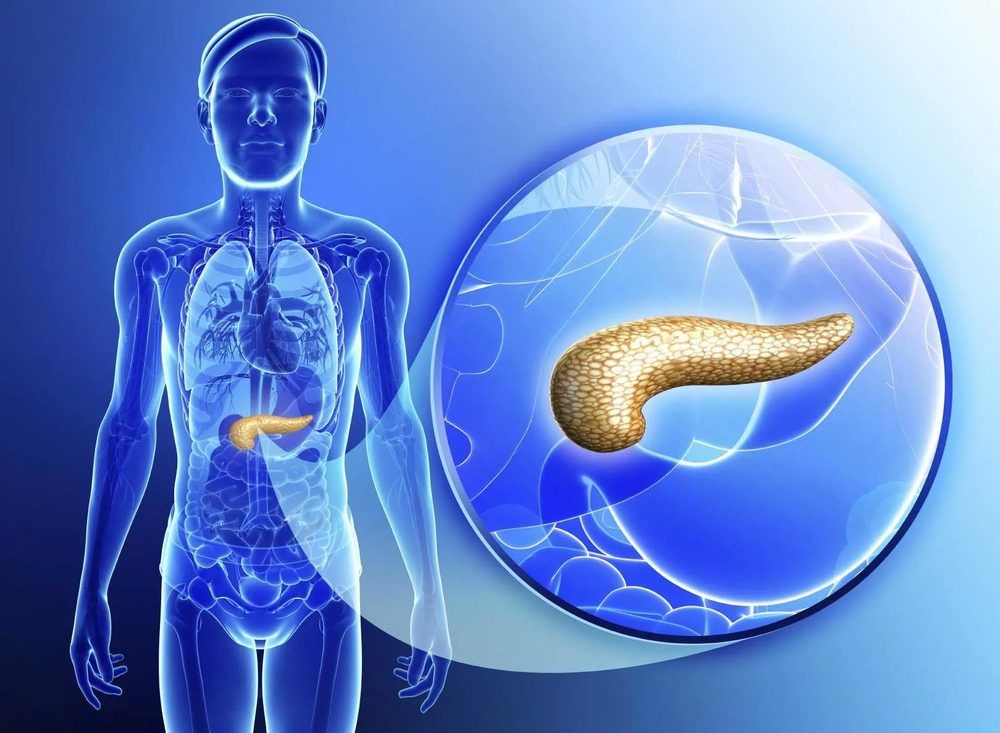Early results in The Lancet on Oxford coronavirus vaccine clinical made by AstraZeneca suggest the COVID-19 vaccine is safe and induces antibodies and T cell response.



The Israeli startup CorNeat Vision has received approval to conduct clinical trials of a synthetic cornea that bio-integrates with the human eye.
The Health Ministry-approved trial of the CorNeat KPro will be run at Beilinson Hospital in Petach Tikva on 10 patients suffering from corneal blindness who are either not candidates for or have experienced one or more failed cornea transplants, the company announced last week.

Yesterday, Regeneron Pharmaceuticals, with the U.S. National Institute of Allergy and Infectious Diseases (NIAID), announced it was launching Phase III trials of REGN-COV2, the company’s two-antibody cocktail for the treatment and prevention of COVID-19. Today, it announced that it had received a $450 million contract to manufacture and supply the antibody cocktail as part of Operation Warp Speed from the Biomedical Advanced Research and Development Authority (BARDA).
BARDA is part of the Office of the Assistant Secretary for Preparedness and Response at the U.S. Department of Health and Human Services. The contract was also with the Department of Defense Joint Program Executive Office for Chemical, Biological, Radiological and Nuclear Defense.
A Phase I trial in 30 hospitalized and non-hospitalized patients with COVID-19 received a positive review from the Independent Data Monitoring Committee.
The Phase III prevention study will be run at about 100 locations and enroll about 2,000 people in the U.S. The Phase II/III treatment trials in hospitalized patients will evaluate about 1,850 hospitalized patients and 1,050 non-hospitalized patients and is planned for about 150 sites in the U.S., Brazil, Mexico, and Chile. It will study virologic and clinical endpoints. Preliminary data is expected later this summer.
The company had begun scaling up manufacturing of REGN-COV2 in the spring at its own expense. This deal with BARDA and the DoD supports continuing the manufacturing in order for it to be immediately available in the U.S. if the clinical trials are successful. That availability would be dependent on efficacy and safety and on the U.S. Food and Drug Administration (FDA)’s granting of an Emergency Use Authorization (EUA) or product approval.

While the issue of aging and DNA methylation is an area that is well-studied, modifications of DNA to reduce or reverse aging remains an area in need of exploration. Studies in mice utilizing interventions such as caloric restriction and the drug rapamycin have reversed and/or slowed age-related DNA methylation by up to 40%. Understanding the cross-species aging based on similar DNA behaviors may open more doors to investigating therapeutics to minimize lifetime risks of age-related illnesses such as Alzheimer’s disease and cancers.
A recent study published in Cell Systems sought to debunk one of the most common myths about dogs: much to our surprise, one “dog year” does not equal seven “human years.” As described in a recent Forbes piece by Sara Tabin, the relationship between dog years and human years is not linear, but is based on a logarithmic formula. The research group, based at the University of California, San Diego (UCSD), created the formula as follows:
Age in human years = 16 ln(age in dog years) +31. (ln means “natural logarithm).
Scientists and historians working at McMaster University, the Mütter Museum and the University of Sydney have pieced together the genomes of old viruses that were used as vaccination strains during and after the American Civil War ultimately leading to the eradication of smallpox.
Smallpox was one of the most devastating viral diseases ever to strike humankind, killing about three out of every 10 people who were infected. Those who survived were frequently disabled, blind or disfigured.
The World Health Organization recently celebrated the 40th anniversary of the eradication of smallpox, the most successful campaign ever attempted. As researchers around the world work feverishly to develop a vaccine against COVID-19, the success of the campaign and the findings of this paper, outlined the journal Genome Biology, point to the value of vaccination, say researchers. They suggest other vaccines are waiting to be discovered among the viral relatives of today’s influenza and coronaviruses.

Summary: APOEe4, a gene associated with Alzheimer’s disease risk, doesn’t appear to directly affect memory performance or brain activity in older adults without cognitive impairment. However, the gene does seem to influence brain regions and systems that older at-risk adults activate to support successful memory recall.
Source: McGill University
Researchers at McGill University and the Douglas Mental Health University Institute, in collaboration with the StoP-AD Center, have published a new paper in the Journal of Alzheimer’s Disease, examining how a known genetic risk factor for late-onset Alzheimer’s disease (AD) influences memory and brain function in cognitively intact older adults with a family history of AD.


The biotech Mesoblast is starting a compassionate use study of its stem cell product for kids with a severe offshoot of COVID-19.
The cellular drug in this case is remestemcel-L (more below).
While most children fare better than adults in dealing with COVID-19, the rare subset of kids with COVID-19 for this study have more severe disease than the average COVID patient and some die.

In the COVID-19 outbreak frenzy, several countries are considering massive fiscal stimulus packages and printing money, to blunt the concurrent crises underway: the pandemic and the unraveling economic depression.
These plans are essential, but they need to be strategic and sustainable. Because in addressing the current crises, we must avoid sowing seeds of new ones, as the stakes are incredibly high.
It is time to add a new element to the policy packages that governments are introducing, one we know but have abandoned: Universal Basic Income (UBI). It is needed as part of the package that will help us to get out of this yawning pit.

Pancreatic cancer is rarely detected at its early stages when it’s most curable. This is because it often doesn’t cause symptoms until after it has spread to other organs. Treatment options are chosen based on the extent of the cancer and may include surgery, chemotherapy, radiation therapy, or a combination of these. Using mice and lab-grown pancreas models, scientists at Cold Spring Harbor Laboratory (CSHL) have discovered that they can stop the growth of pancreatic cancer cells by blocking the way the cells store cholesterol.
Their study, “SOAT1 promotes mevalonate pathway dependency in pancreatic cancer,” was published in the Journal of Experimental Medicine and led by David Tuveson, MD, PhD, professor at CSHL.
Tuveson’s team wanted to know why pancreatic cancer cells, like many cancer cells, produce abundant amounts of cholesterol. “Pancreatic ductal adenocarcinoma (PDAC) has a dismal prognosis, and new therapies are needed. Altered metabolism is a cancer vulnerability, and several metabolic pathways have been shown to promote PDAC. However, the changes in cholesterol metabolism and their role during PDAC progression remain largely unknown. Here we used organoid and mouse models to determine the drivers of altered cholesterol metabolism in PDAC and the consequences of its disruption on tumor progression,” the scientists wrote.